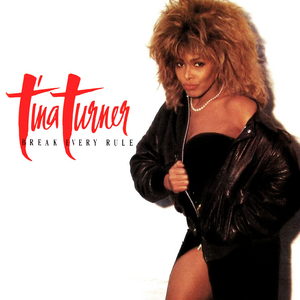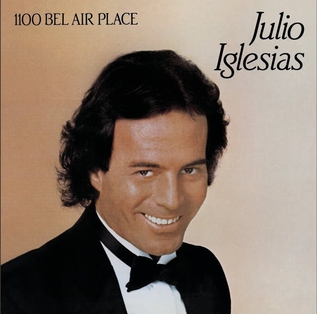
Private Dancer is the fifth solo studio album by American singer Tina Turner. It was released on May 29, 1984 by Capitol Records and was her first album released by the label. After several challenging years of going solo after divorcing Ike Turner, Private Dancer propelled Turner into becoming a viable solo star, as well as one of the most marketable crossover singers in the recording industry. It became a worldwide commercial success, earning multi-platinum certifications, and remains her best-selling album in North America to date.

Inside Information is the sixth studio album by the British-American rock band Foreigner, released on December 7, 1987. The album debuted at 15, on the Billboard 200 Albums Chart and was certified Platinum in the U.S. for sales exceeding one million copies. Although a huge standard by any country's charting method, the band's sales were certainly plummeting since the release of 4 in 1981. It was the last album to feature the '80s core lineup of Gramm, Jones, Wills, and Elliott.

The Swing is the fourth studio album by Australian rock band INXS, released on 21 March 1984. It peaked at number one on the Kent Music Report Albums Chart for five non-consecutive weeks from early April to mid-May 1984. The lead single "Original Sin" was recorded in New York City with Nile Rodgers and featured Daryl Hall on backing vocals. Overall, the album featured a slightly harder-edged sound than their previous releases.

What's Love Got to Do with It is the first soundtrack by American singer Tina Turner, released on June 15, 1993, by Parlophone. It served as the soundtrack album for the 1993 Tina Turner biographical film of the same name, which was released by Touchstone Pictures that same year. It mostly consists on re-recorded versions of her greatest hits during her period with the Ike and Tina Revue. In celebration of the 30th anniversary of What's Love Got to Do with It, the album was re-released on April 26, 2024 with remixes, single edits and rarities.

Radio Musicola is the third studio album by the English singer-songwriter Nik Kershaw, released on 20 October 1986 by MCA Records, just under two years after Kershaw's previous studio album, The Riddle (1984). It was the first studio album to be produced by Kershaw. It features guest backing vocalists, including Icehouse's Iva Davies, and Night's Stevie Lange, and Miriam Stockley.

Rickie Lee Jones is the debut studio album by American singer-songwriter Rickie Lee Jones, released on February 28, 1979 by Warner Bros. Records.

Destination is the second studio album from Irish singer-songwriter Ronan Keating. It was released by Polydor Records on 20 May 2002. The album debuted at number one on the UK Albums Chart and was certified two-times platinum by the British Phonographic Industry. In Ireland, the album debuted at number three. Additionally, the album charted within the top ten of nine other European countries. In 2002, Destination was certified platinum by the International Federation of the Phonographic Industry for shipments of one million copies inside Europe. The album includes the singles "If Tomorrow Never Comes", "I Love It When We Do", "We've Got Tonight", and "The Long Goodbye", all of which peaked inside the top ten of the UK Singles Chart.

Duets is the first collaboration studio album by English musician Elton John, released in 1993. The album debuted at No. 7 in the UK. In the US, it peaked at number 25 on the Billboard 200 chart and was certified platinum in January 1994 by the RIAA.

The Riddle is the second studio album by English singer-songwriter Nik Kershaw, released on 19 November 1984 by MCA Records.

Break Every Rule is the sixth solo studio album by Tina Turner. It was released on September 8, 1986, through Capitol Records. It was the follow-up to Turner's globally successful comeback album, Private Dancer, released two years earlier. The lead single "Typical Male" peaked at number two for three consecutive weeks in October 1986, while "Two People" and "What You Get Is What You See" reached the top 20. "Back Where You Started" earned Turner her third consecutive Grammy Award for Best Rock Vocal Performance, Female in 1987. It was Turner's first solo album of original songs.

Men and Women is the second album by British pop and soul group Simply Red, released in 1987.

Another Ticket is the seventh solo studio album by Eric Clapton. Recorded and produced by Tom Dowd at the Compass Point Studios in Nassau, Bahamas with Albert Lee, it was Clapton's last studio album for RSO Records before the label shut down in 1983 as it was absorbed by Polydor Records. It received moderate reviews and achieved modest commercial success peaking at No. 18 in the UK charts.

"Wouldn't It Be Good" is a song by the English singer-songwriter Nik Kershaw, released on 20 January 1984 as the second single from his debut studio album, Human Racing (1984). The release was Kershaw's second single, with the non-album track "Monkey Business" as its B-side; it was a bonus track on the 2012 re-release of the album. The music video was directed by Storm Thorgerson.

"I Won't Let the Sun Go Down on Me" is a song by English singer-songwriter Nik Kershaw from his debut studio album, Human Racing (1984). It was his first single, released on 9 September 1983 to limited success. When re-released on 4 June 1984, the song became Kershaw's highest-charting single on the UK Singles Chart, peaking at number two. It features the non-album track "Dark Glasses" as the B-side, which was also released as a bonus track on the 2012 re-release of the album.

It Won't Be Soon Before Long is the second studio album by American pop rock band Maroon 5. It was released on May 16, 2007, by A&M Octone Records, as the follow-up to their debut album, Songs About Jane (2002). The name was inspired by a phrase the band adopted to keep themselves motivated while on their tour.

Live 1980/86 is a Joe Jackson double live album, released in April 1988. It was recorded during the 1980 Beat Crazy tour, the 1982-83 Night and Day tour, the 1984 Body & Soul tour, and the 1986 Big World tour. Notably, the album contains three different versions of "Is She Really Going Out with Him?"

1100 Bel Air Place is a concept album of love songs largely composed by Albert Hammond, and performed by Spanish singer Julio Iglesias, released on 10 August 1984 by CBS Records internationally and by Columbia Records in the United States. It was the first of Iglesias' albums to be performed largely in English, and it is generally considered his breakthrough album in English-speaking markets.

Vagabond Heart is the sixteenth studio album by British recording artist Rod Stewart, released on 25 March 1991 by Warner Bros. Records. The album reached No. 10 in the US, and reached No. 2 in the UK. The album features five singles, among them a cover of Robbie Robertson's song "Broken Arrow" and Van Morrison's song "Have I Told You Lately", which would become a hit two years later, and is Stewart's most recent top five solo hit in the US and the UK. The two biggest hits from the album were "Rhythm of My Heart" and "The Motown Song". The latter song features Steve Lukather, David Paich, Steve Porcaro and Jeff Porcaro.

Lisa Stansfield is the fourth solo studio album by British singer Lisa Stansfield, released by Arista Records on 21 March 1997. It was her first new studio album since 1993's So Natural. Stansfield co-wrote most songs for the album with her husband Ian Devaney. The tracks were produced by Devaney and Peter Mokran. Lisa Stansfield garnered favourable reviews from music critics and was commercially successful, reaching number two in the United Kingdom and receiving Gold certification. In the United States, it spawned four number-one singles on Billboard's Hot Dance Club Songs. Lisa Stansfield was rereleased as a deluxe 2CD + DVD set in Europe in November 2014.

Glenn Medeiros is the self-titled debut album by American singer Glenn Medeiros, released in 1987. The album includes his cover version of George Benson's "Nothing's Gonna Change My Love for You", which was a massive worldwide hit, reaching #12 on the Billboard Hot 100 and spent four weeks at number one on the UK Singles Chart in July 1988.



















